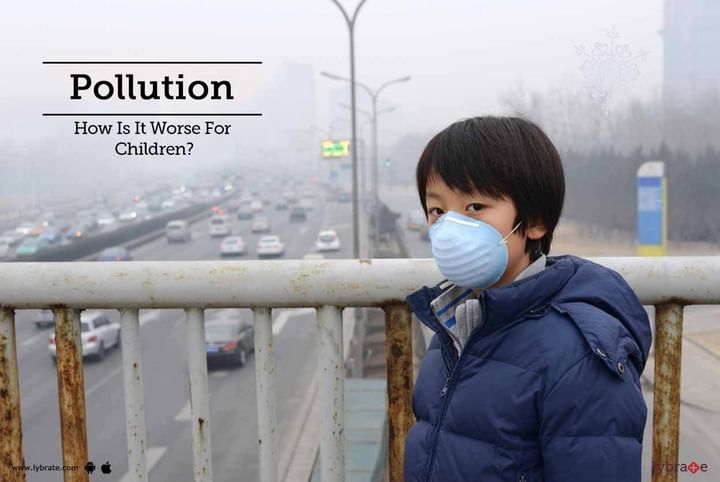Pollution - How Is It Worse For Children?
The term pollution means introduction of harmful and unwanted contaminants into our environment. Due to the borderless nature of our atmosphere and oceans, contamination at a small level can have a huge impact that to in places which are nearby and one of the best examples of this is crop stubble burning in Punjab and Haryana which is a major contributor to Delhi smog. Pollution is a slow poison and is deleterious to the life of all beings, including plants, animals, and humans. With the rise in the pollution levels, no one can escape the harmful effects of the same on health. Though pollution poses a great threat to everyone, it is the children who are most effected, let us read on to know the reasons
Why are children more susceptible to pollution?
- The lung function, immune system, and metabolic systems in children are not fully developed and functional which makes it difficult for the body to fight these pollutants.
- Children breathe in more air per kilogram of their body weight than adults, so they take in more pollutants per breath.
- Children are not only more active but also have a faster breathing rate than that of adults. This means that they take in more environmental toxins and at a much faster rate.
Understanding the effects of pollution on children’s health
- Exposure of pregnant women to polluted air is strongly associated with premature birth, low birth weight, and intrauterine growth retardation. Low birth weight babies and premature infants are more prone to developmental delays and other disorders.
- Exposure to certain pollutants like carbon monoxide and ozone are linked with septal and valvular defects in the heart of a child.
- There is a strong association between particulate pollution and symptoms like wheezing and bronchitis in both adults and children. This is the main reason why there is an increased prevalence of Asthma in children in urban areas. Research has shown that high level of pollutants in air cause deficits in lung function growth.
- The immune system which protects the body from infections and germs is not fully developed in children. Pollutants are known to cause suppression of immunity in small children making them more prone to infections.
- Children need sufficient Vitamin D for strong and healthy bones. Vitamin D is known as sunshine vitamin and is synthesized in the body on exposure to UVB rays of the sun. Increased particulate components in the air reduce the amount of UVB radiation reaching the ground level. More than 60% children are Vitamin D deficient and require supplements orally.
- The exhaust of gasoline and diesel is known to emit carcinogens which are thought to play a role in the development of leukemia (blood cancer) in children.
- The nervous system is a target for many environmental pollutants. Exposure to these pollutants can lead to neurological deficits and delays in development. Some of these effects are irreversible and long-lasting.
Unfortunately, with urbanization and increased population, the levels of particulate pollutants in the air are increasing at an alarming rate. The problem of pollution needs to be addressed immediately, until then it is best to keep the children indoor and take necessary precautions and keep children safe from exposure to the pollutants.



+1.svg)
